Diagnosis, autism and untidy boxes and THAT ABC interview with Kathy Gollan.
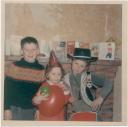 The world of diagnosis is very strange. Â There are children diagnosed with autism at age 2 who by 5 appear non-autistic, I met one who appeared non-autistic until age 5 who lost all speech progressing from a stutter and by age 7 had no speech and severe co-morbids and is clearly autistic.
The world of diagnosis is very strange. Â There are children diagnosed with autism at age 2 who by 5 appear non-autistic, I met one who appeared non-autistic until age 5 who lost all speech progressing from a stutter and by age 7 had no speech and severe co-morbids and is clearly autistic.
The recent million dollar payout to a girl with a genetic cellular disorder who developed ‘autistic tendencies’ after a series of vaccinations too overwhelming for her body to cope with, has brought the purists out in droves. But she isn’t truly autistic shouts one side, but she became autistic shouts the other. And then there’s Amanda Baggs whose situation raises the case of autistic regression in puberty and whether someone can be on a seemingly ‘high functioning’ autistic spectrum at one age and then an entirely different part of the spectrum in adulthood.
My own case rocked similar boats back in 1990 at a time when Asperger’s wasn’t yet a diagnosis, Semantic Pragmatic Disorder was virtually unheard of and 90% of those with autism were still believed to be severely mentally retarded. Today, however, the children once labeled psychotic and disturbed in the 50s and 60s are being diagnosed with ASDs, including autism and this view of tidy boxes has given way to realisation their are not poles but spectrums and that some people move along them in unexpected directions for a multitude of interconnected, often complex reasons.
 I was assessed at St Elmo’s Private Hospital in 1966 aged two years old as ‘psychotic’. I was admitted because it was suspected I was deaf, had signs of immune disorder (I was tested for Leukemia) and was coughing blood (later understood to be a severe coughing tic). According to my father the basis for this term ‘psychotic’ applied to a two year old was essentially because I was found not to be deaf yet was unresponsive to speech and pain and was found to be tensing my stomach muscles and coughing compulsively against this force which was deemed self injurious.
I was assessed at St Elmo’s Private Hospital in 1966 aged two years old as ‘psychotic’. I was admitted because it was suspected I was deaf, had signs of immune disorder (I was tested for Leukemia) and was coughing blood (later understood to be a severe coughing tic). According to my father the basis for this term ‘psychotic’ applied to a two year old was essentially because I was found not to be deaf yet was unresponsive to speech and pain and was found to be tensing my stomach muscles and coughing compulsively against this force which was deemed self injurious.
I spent 6 months from age 4 in a private kindergarten called Gilmer College, Preston, which took both mainstream and special needs children but was removed after an Italian girl named Gracey who had CP, hit me over the head with a rock (go figure).
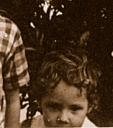 I was enrolled in Preston West Primary School and was taken into a group of 6 children aged 5 in a special teacher training class called The Country Infant Room which was used to teach urban teachers how to teach in country schools and had 3 age groups in the one class with around 6 children in each age group. My teacher for the three years of grade prep, 1 and 2 was Mrs. Caroline Reeves whose photo of the class features on my website. Apparently my mother was called in in my first week and told that I was unable to stay seated, didn’t respond to questions, didn’t know prayers and sang all day which disrupted the other children. Mrs. Reeves, who was the mother of a child with special needs herself, was told, rather unpolitely what would happen to her if she called my mother in for anything this stupid again. So Mrs. Reeves got stuck with me.
I was enrolled in Preston West Primary School and was taken into a group of 6 children aged 5 in a special teacher training class called The Country Infant Room which was used to teach urban teachers how to teach in country schools and had 3 age groups in the one class with around 6 children in each age group. My teacher for the three years of grade prep, 1 and 2 was Mrs. Caroline Reeves whose photo of the class features on my website. Apparently my mother was called in in my first week and told that I was unable to stay seated, didn’t respond to questions, didn’t know prayers and sang all day which disrupted the other children. Mrs. Reeves, who was the mother of a child with special needs herself, was told, rather unpolitely what would happen to her if she called my mother in for anything this stupid again. So Mrs. Reeves got stuck with me.
Grade 3 saw me with Mr Puddy who placed me, Bucky, Ralph and David Dunstan out in the cold corridor for a large part of the school year as was the discipline for uncontrollable children in 1971.
Grade 4 saw me with Ms. Separovich then transferring for six months to Bell Primary into a class headed by a Mr. Mc Donald whose discipline involved throwing things at me and standing me in the rubbish bin but at least I wasn’t cold. Back with Mrs. Separovich I had my highs and lows. Grade 4 also saw my reading teacher, Mrs. Parker manage to sit next to me long enough to discover my fluent reading was completely without comprehension and I am indebted to her for her wonderful help with meaning deafness, taking me back to picture word dictionaries and linking these with gesture through which the world of one-word-one-meaning was finally born.
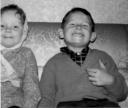 Grade 5 saw me with Ms. Helen Elmer who was a lovely young woman who tried very hard to help me be an integrated human being but experienced thrown chairs, a flying cricket bat, me running at the walls, children pushed down stairs, my many mouthfulls of ink (strategy for being sent out) and much sudden bolting from the classroom.
Grade 5 saw me with Ms. Helen Elmer who was a lovely young woman who tried very hard to help me be an integrated human being but experienced thrown chairs, a flying cricket bat, me running at the walls, children pushed down stairs, my many mouthfulls of ink (strategy for being sent out) and much sudden bolting from the classroom.
Grade 6 saw me with Mr. Frank Ryan (Mr. Reynolds in Nobody Nowhere) who spoke with Dr. Lawrence Bartak and who I thanked from the stage before an audience of thousands at the World Autism Congress in 2002 in Melbourne. He is also the teacher who phoned Ms. Caterina Nan after she mistakenly believed she’d been my grade prep teacher grilling her as to what posessed her to make that bold and incorrect presumption and to take this further as to lie or misremember on an ABC radio interview (her section has since been edited out by the ABC).
 It was the professionals from the Psych and Guidance service at Preston West Primary who saw me over my 7 years there who assessed me as ‘disturbed’ in my Primary School records.
It was the professionals from the Psych and Guidance service at Preston West Primary who saw me over my 7 years there who assessed me as ‘disturbed’ in my Primary School records.
At age 9 I was again tested for deafness and my family came to understand that I wasn’t deaf but couldn’t understand language. They then began to use slowed, simplified speech with gestures and representational objects and from here I began to come to comprehend simple sentences.
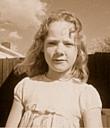 Around age 10 I was taken home by a teacher named Christine (wish I knew her last name but if you ever read this Christine, let me now thank you) who was the fiance of a car dealer friend of my fathers and worked at Thornbury Primary School in Thornbury, a suburb of Melbourne. The pair had found me in my pyjamas in the street following a family brawl during a party at my house which they’d been attending and were now fleeing (those who’ve experienced domestic violence will know this picture). After spending the night at their flat in Thornbury, the next day she found I couldn’t understand anything. Anyway, the Elvis film, Change of Habit (1969) about an autistic girl who he ‘cures’, had just come out in Australia. It was 1972 and this teacher brought me back to my parents and told them I was autistic.
Around age 10 I was taken home by a teacher named Christine (wish I knew her last name but if you ever read this Christine, let me now thank you) who was the fiance of a car dealer friend of my fathers and worked at Thornbury Primary School in Thornbury, a suburb of Melbourne. The pair had found me in my pyjamas in the street following a family brawl during a party at my house which they’d been attending and were now fleeing (those who’ve experienced domestic violence will know this picture). After spending the night at their flat in Thornbury, the next day she found I couldn’t understand anything. Anyway, the Elvis film, Change of Habit (1969) about an autistic girl who he ‘cures’, had just come out in Australia. It was 1972 and this teacher brought me back to my parents and told them I was autistic.
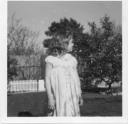 In those days this was more an adjective than a diagnosis because in the 1960s and 70s those who didn’t precisely fit the stereotype of the day of autism (silent, sullen, middle class boys) were labelled psychotic or disturbed children (as was the case with me). But the word ‘autistic’ was far more insulting to mothers than the terms ‘psychotic’ or ‘disturbed’ applied to their children. The word ‘autistic’ in the 1950s, 60s and 70s meant ‘your mother had caused it’. And the Elvis film said so too.
In those days this was more an adjective than a diagnosis because in the 1960s and 70s those who didn’t precisely fit the stereotype of the day of autism (silent, sullen, middle class boys) were labelled psychotic or disturbed children (as was the case with me). But the word ‘autistic’ was far more insulting to mothers than the terms ‘psychotic’ or ‘disturbed’ applied to their children. The word ‘autistic’ in the 1950s, 60s and 70s meant ‘your mother had caused it’. And the Elvis film said so too.
Needless to say that whilst my father (who could barely read or write) was all ears, my mother was not. It was emotionally easier for her to introduce me as disturbed or psychotic so that visitors might understand if I head butted them, threw things, hit myself or failed to respond. My father would introduce me as ‘feral’ so people would understand why I appeared uncontrollable, impulsive or incomprehensible. And for him, feral had the hope that, just like Elvis, some people had the skill to tame such children. So for them, the word ‘autistic’ simply wasn’t as practical.
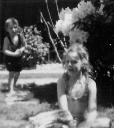 I went to 4 secondary schools from age 12-15, lasting 6 months at the first, 2 weeks at the second, 18 months at the 3rd and a few months at the fourth, finishing my education by age 15.
I went to 4 secondary schools from age 12-15, lasting 6 months at the first, 2 weeks at the second, 18 months at the 3rd and a few months at the fourth, finishing my education by age 15.
The third of these schools was Fitzroy High School and the co-ordinator in charge of me was Caroline Hogg MP…who was not an MP then, but she pretty much had to look after me 1-1 most days every week after I’d be banned from almost all classes and from all excursions. Unable to do much with me, she left me paper and pencil to draw and much of her time with me was in ensuring I was not wandering the community (she’d regularly have to pick me when I’d wandered to other suburbs and joined in classes at other schools), not endangering other students, property or myself. She had the patience of a saint. She offered me exemption from education at age 14. I turned it down. My final secondary school at age 15 found me largely ‘unassessible’
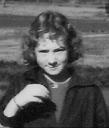 At age 18, with professional help I entered college, got remedial maths and English and passed year 12 by attending every class twice (once in the day, once in the evening) and from there, with professional help, went on to university.
At age 18, with professional help I entered college, got remedial maths and English and passed year 12 by attending every class twice (once in the day, once in the evening) and from there, with professional help, went on to university.
In 1990, a year after treatment for gut, immune and metabolic disorders, I was formally diagnosed as autistic by Australia’s most well known Educational Psychologist, Dr Lawrence Bartak at Monash Medical Centre, Melbourne. He has worked with people with autism for almost 40 years at that time.
 My IQ at that time was assessed as overall just under 70, putting me in the mildly mentally retarded range although I had university degrees. Within that score, other parts of testing found genius range skills apparently impossible for most non-autistic people to replicate. For example I could regurgitate patterns at a very high level but struggled to give back the meaning of a passage I had to read. My paternal aunt who had been involved with my family all my life (I was given to her at one point but they were unable to adopt me) had been interviewed about my early history and Lawrie Bartak later met another friend of my family who had known me since I was 7.
My IQ at that time was assessed as overall just under 70, putting me in the mildly mentally retarded range although I had university degrees. Within that score, other parts of testing found genius range skills apparently impossible for most non-autistic people to replicate. For example I could regurgitate patterns at a very high level but struggled to give back the meaning of a passage I had to read. My paternal aunt who had been involved with my family all my life (I was given to her at one point but they were unable to adopt me) had been interviewed about my early history and Lawrie Bartak later met another friend of my family who had known me since I was 7.
My diagnosis in 1990 was autism due to having dysfunctional language indicative of a significant language processing disorder. Though I was ‘functionally non-verbal’ I always sang and recited advertisements, TV shows and bits of people’s sentences. Though I’ve had phases of Selective Mutism, I have never been non-verbal in the silent sense though due to meaning deafness until late childhood my language was highly idiosyncratic, non interactive and largely incomprehensible for much of my childhood. I was diagnosed with a receptive language processing isorder around age 9 after further testing for deafness and reassessed with the same at age 42 when I sought further help to improve receptive language processing.
Whilst I fitted today’s far broader DSM for autism, back in 1990 this DSM was far narrower and Asperger’s was not yet a diagnosis. In 1990, I more likely fitted Semantic Pragmatic Language Disorder with Autistic Tendencies, but SPLD also didn’t exist as a diagnosis in 1990. So I was diagnosed by Dr Bartak as close as the words existed at the time. Today the DSM diagnoses as autism people who would have been highly controversial with such diagnosis in 1990. We are the untidy boxes and purists would surely prefer had we remained labeled just ‘psychotic’ or ‘disturbed’ and blame our developmental disabilities on neglect, abuse or attachment disorders whilst only ‘good families’ had ‘real autistic’ children.
An ABC interview in 1996 featured my ex-Supervisor from my honours year at University, a man with no qualifications in the autism field or child development. But having a PhD in sociology meant that to the layperson his title of Dr. could be read however the audience wished and of course his claim of ‘knowing me’ personally. Of course knowing a person personally can mean many things and in this case meant that I’d spent 10 obligatory 30 min appointments alone in his office as my thesis supervisor. Beyond that, anyone interested in my impressions of those appointments can read about him in Nobody Nowhere.
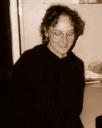 The interview also featured a student who claimed to be in my teacher’s course. She did share a one hour English class once a week with me and was on two of my teacher’s rounds with me. She is featured the book Somebody Somewhere for those who’d like to glean some insight into her desire to feature in the interview.
The interview also featured a student who claimed to be in my teacher’s course. She did share a one hour English class once a week with me and was on two of my teacher’s rounds with me. She is featured the book Somebody Somewhere for those who’d like to glean some insight into her desire to feature in the interview.
Others once featured in the interview have been dropped from it. One in particular, Ms. Nan Caterina, mistakenly thought she’d been my Prep grade primary school teacher (at age 5). Appalled, one of my real Primary school teachers, Mr Frank Ryan, called her and I put up a photo of my real teacher, Mrs. Caroline Reeves, (who’d had me for grades Prep, 1 and 2 in a specialised class called The Country Infants Room) on my website.
In the so called ‘controversy’ of, “was Donna Williams really autistic?”, expert opinion was sought from two US Autism specialists 10,000 miles away, Dr Fred Volkmar, and Dr Kathleen Dillon who had never met me. Nor had the interviewer, Kathy Golan. Dr Bartak appeared to feature in the interview but in fact was also not present in the interview but was edited into it from an interview years before to give the semblance he is present in this one.
This was the quality of the ABC interview, by journalist Kathy Gollan, considered to be ‘credible investigative journalism’. Today the interview is generally seen as outdated and highly ignorant about ASD.
Donna Williams *)

For those zealously following the so called ‘controversial’ interview, here’s some interesting and verifiable facts regarding reliability of the ABC interview.
a) that the interviewer, Kathy Golan, never met me
b) that the ‘expert’, Dr Volkmar ,had never met me
c) that Dr Bartak who diagnosed me had the same number of years experience with autism as Dr Volkmar
d) that the lecturer, Chris Eipper interviewed was a sociologist with no qualifications in child development or autism
e) that Ms. Nan Caterina once featured in the interview but has been edited out (see archived editions) because she in fact had never been my teacher.
f) that Marcia Devlin, the student featured who claimed to have been in my class all year had in fact been in the other of the two classes that year and the only shared class time with her was a 1 hr a week English class where the two groups joined.
g) that both Chris Eipper and Marcia Devlin feature negatively in the books Nobody Nowhere and Somebody Somewhere and they have not mentioned this at all in the interview.
h) That Lawrie Bartak was not actually present in the Kathy Golan interview and that the recording of him featured there is in fact edited in from a different ABC interview with another journalist some years before.
Good thing I never listen to ABC. All the major news sources in America are propaganda machines.
Reminds me of a lot of people who see one little boy who cannot speak, or make eye contact, and who bangs his head and say I, an 18-year-old, or other Aspies, cannot possibly be autistic.
No research or further experience needed.
That’s another thing people don’t realize. People tend not to maintain the same symptoms for the same severity forever. Most attention paid to autism is paid on young children, but very little on other ages, and I think this is part of the confusion for people who do not have much experience with anyone with autism.
Pain in the ass. People need to stray from their little boxes very badly.
Yes one of the main things raised by the student in my teaching year (who featured in Somebody Somewhere quitenegatively but failed to mention this rather significant fact at all) was how she noted that I coped in the once a week 1 hr English class she was in with me (she actually wasn’t in my main class with me, there were two classes and she was in the other one) but struggled in a class involving bush dancing. Bush dancing involves constant touch with different partners and having to visually perceive whole bodies in order not to overload and freak. My visual processng is slow and the faster things come at me the more cohesive. The lecturer understood this but the student interviewed chose to seize on that as proof that I wasn’t as autistic in a class about children’s story books as in the dance class.
The same criticism was leveled by the fellow student who’d once had a coffee with me. Well, after 4 years of studying Sociology, and a year in the classroom of this acquaintance, I had plenty of Sociology scripting to play out and was already accustomed enough to his movements and speech patterns to not be inhibted. But he refers to me being hypomanic, which was common when overstimulated and happens in many socially phobic people. But he has compared this with me really struggling with acute exposure anxiety with a journalist asking me personal questions about my inner world and child abuse, where clearly I was struggling to process her language and dare to use my own.
Then the lecturer, Eipper, really seizes on all this because in the 10 x 30 min office appointments I was obliged to have alone with him in his office, I was flighty, sometimes giggly, often diverting from one tangent to another in quick succession to avoid his interest in me, which is spelt out a litle obviously in Nobody Nowhere and hence went down like a lead balloon with him. Anyway, the fact I was different with this FEMALE journalist in an interview than when obliged by my course criteria to be alone with him in his office or fail my honours year (it was a condition one must spend 10 x 30 min appointments with one’s thesis supervisor) anyway, you can see the situation.
But who wants to hear any of that, not when one can imagine a juicy controversy and the journalist refers to the interviewees as ‘bravely speaking out’. What on earth were their imagined sanctions?
I noticed in the interview a long time ago, that the things they were claiming were evidence of not being autistic, are common traits in autistic people.
Sometimes it literally looked like they were saying, “Oh, look at all her bad social skills/comprehension problems/etc, they prove she’s not autistic.”
Which is really strange.
Yes, I know
but what seems to bother the main 2 interviewees (the lecturer and teaching course student who featured negatively in NN and SS) is that I fail to present in the SAME autistic style in ALL situations.
So in their reasoning, I should present the same when involved with those who have studied the same topic I had for 4 years (sociology) as when involved with an interviewer I’d never met, in a building and place and structure I’d never encountered, on a topic I’d never spoken verbally on and which was far more highly personal that sociology scripts I’d had 4 years and scanned volumes of books to accumulate).
Or sitting watching a teacher present about how to read children’s stories to children, should bring out exactly the same responses as a room of moving, touching dancing bodies with faces and hands moving at me and past me at a relentless pace.
So the interview is actually an historical artifact, a representation of the typical ignorance about autism present of 1996.
Yes, especially when autistic people are known for having different ability-sets in different situations.
Known for that, even at the time, among people who actually studied autism enough, but not enough people even did, or do. I’ve seen references to it dating back to the seventies or eighties at least, if not earlier. One very common one is for autistic people to behave one way around family, another way at school, and still another way in clinical examinations — and interestingly enough that one can go either way (with any one of those seeming the “most able” and “least able” in different people).
Of course, one thing I’ve noticed, is that even among those who study autism, they seem to draw some very odd conclusions about what they do see. It’s like they see what’s there, but they don’t understand it, so they throw half of what they see out of their heads entirely, and then make up strange theories about the rest. And the strange theories are most of what pass for knowledge and expertise. Then another person comes along, and builds theories on top of the old theories, calling the old theories ‘facts’ even if they’re totally off the mark.
I thought that was a super cool observation. Then I saw who wrote it and thought, no wonder!
you are truly one of the most insightful writers about autism sociology.
yes, I worked with over 600 people on the spectrum in over a decade as an autistic autism consultant.
Most of those were kids, and most in special needs schools
and I’d say maybe 1/4 of all those I was consulted for,
were reported as strikingly different in their functioning at home versus at school
and exactly as you say sometimes ‘high’ functioning at home
and ‘low’ at school
or vice versa.
Some also varied between parents, being one type of autie with one parent
and another with the other parent.
and people don’t study this because it seriously challenges so many existing ‘respected’ theories and assumptions.
but it also questions whether the semblance of ‘functioning’ is where one is truly developmentally/cognitively/linguistically at, or where scripting and mirroring come in, where people use facades to cover their real levels, where motivation or learned dependency come in….
and that makes THESE auties so dynamic, so much more complex than the 2D outlines of them
its also a funding thing
many times I found the kids reports were made emphasising their disabilities
in order to secure more support and funding
and then the school would stand by the report, expect only within the realms of it
and often the child could function way outside the report
under particular social emotional circumstances
and yet be totally limited under others.
and this really says something else….
about relative emotional intelligence or sensing of different auties
and about which have autism AND emotional disturbance
and the tendency the last 10-20 years is that once a person is diagnosed with autism
that any prior diagnosis of being emotionally disturbed
is invalidated
but on reflection I’m certain I fitted both.
it’s about society’s struggle with a holistic perspective
a a ‘phenomenological’ thing, a perspective thing, a mindset thing, perhaps a ‘modern Western’ thing.
Donna,
I’m very tired right now and having a hard time thinking straight, but just had to write! Besides having been interested in Autism for a long time, I’m now working as a personal aide with an Autistic 19-yr.-old in a work experience setting. I am in the middle of reading “Nobody Nowhere” right now and just happened to end up here on your site after looking at random videos on YouTube. I can’t tell you how much your book has helped me to understand “my kid”. My biggest regret is that it took me so long to find out about you! Just reading the above exchange between you and Amanda has been overwhelmingly illuminating! I thank you for sharing your unique insight and can’t wait to read more!
In the past few months, it has seemed like he’s been trying to draw me into “his world”: While I may never really be able to get inside, I feel as if you’ve at least helped me to peek into the windows of his mind. I think what’s helped the most is that I’ve learned that it would be far better to try to reach him in “his world”, than to try to force him to fit into “the world”.
Thank you!
[…] I have little natural desire to compete. I will defend myself… something bullies, abusers, stalkers and trolls have taught me over many years. But beyond the moment, it’s as if they evaporate. […]